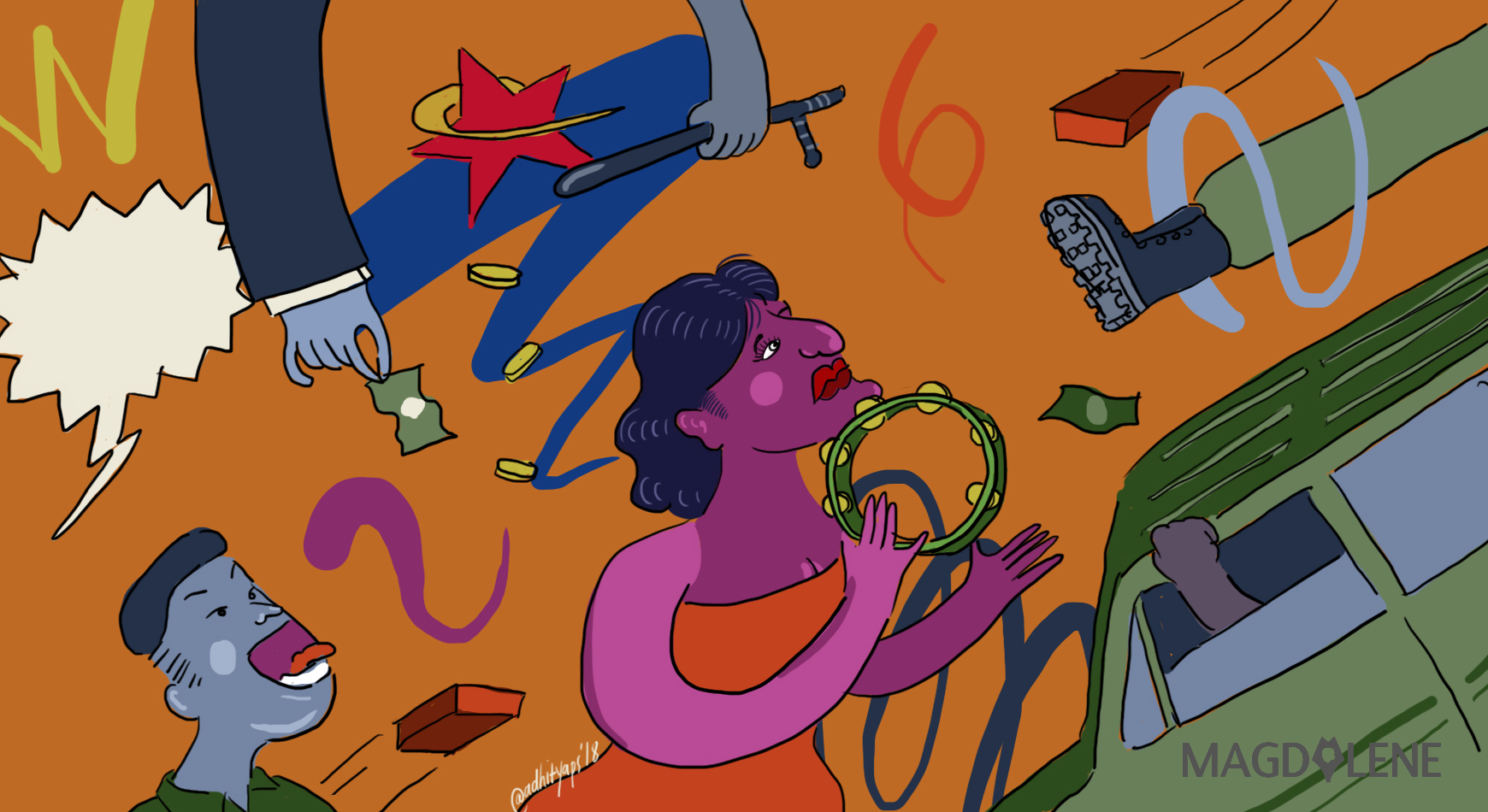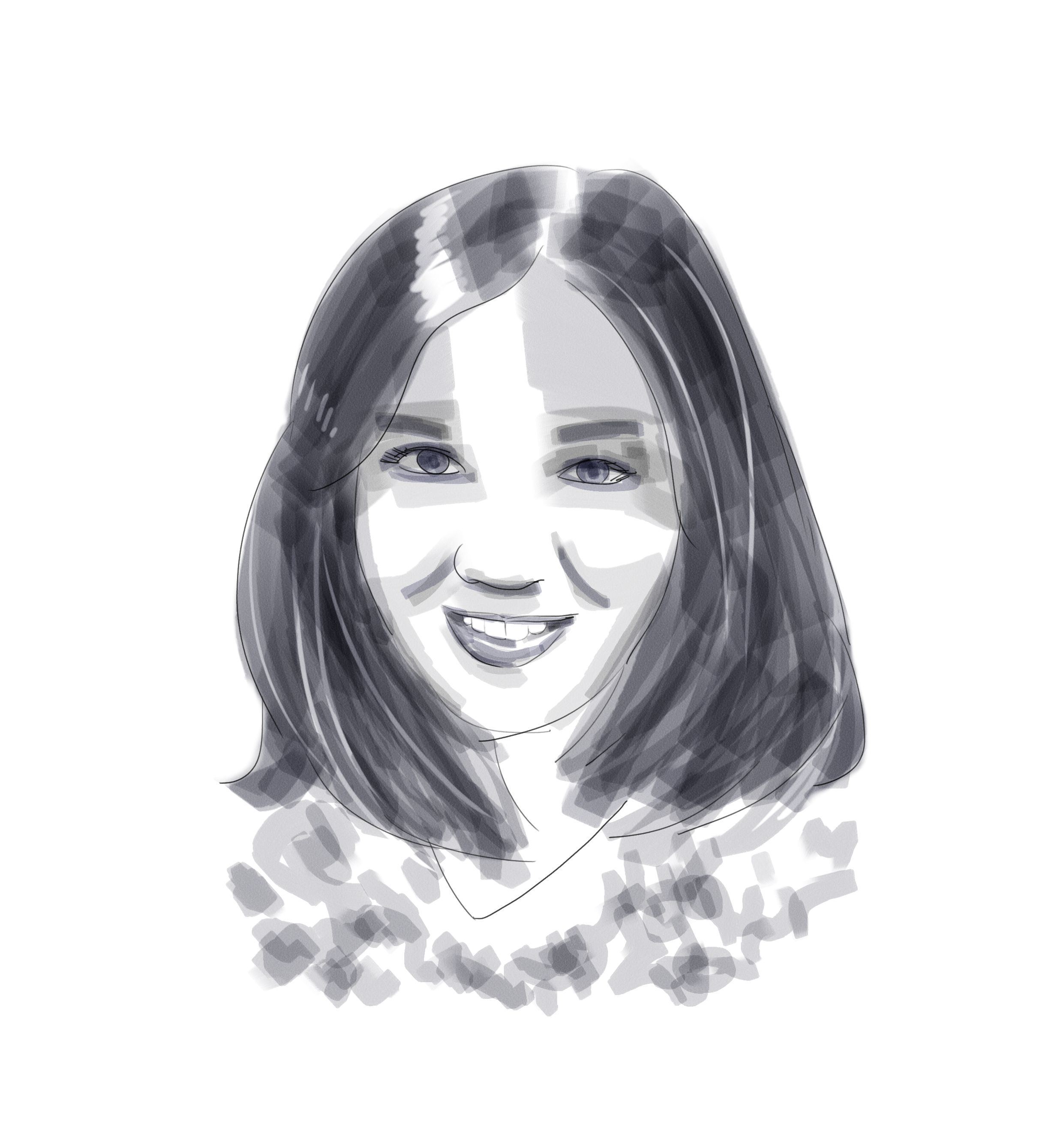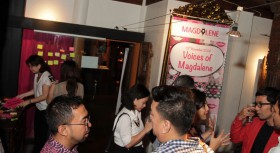Among the myriad challenges faced by the LGBT community in Indonesia, financial issue is one of them, thanks to limited opportunities and access to jobs and education particularly to the most visible members of the community.
For many transwomen, for example, the current oppressive climate of persecution against the LGBT people have increasingly made it hard for them to pursue jobs at beauty salons where most of them work. Recent raids on beauty salons that employed or were owned by transwomen left only one choice of work for many of them: sex work.
“Say whatever you want, but for us, transwomen, being a sex workers is still a job! Sure, it’s not ideal. We’re vulnerable to abuse and disease, but it is the best we have for now,” said gender activist Kanzha Vina from Sanggar Swara during a discussion entitled “Where Do LGBT People Work?” at Festival Pekerja (the Workers Festival) on April 22,
Transwomen are not the only one affected by the current climate of persecution. Fellow gender activist Ino Shean shared her struggles as a lesbian with masculine gender expression.
“I’d say it’s very impossible for us to work at a proper workplace. Profit-based companies won’t hire us unless we dress the way they want us to. If my ID says I’m female, I have to dress as a woman. If Vina’s ID says she’s male, she has to dress as a man,” said Ino.
“So far, the most viable option or us is being a security guard. It does not pay well, for sure,” said Ino.
Ino pointed out that queer people also have to hide or lie about their sexual orientation if they want to fit in in their workplace.
“You might think hiding in the closet isn’t a big deal, but it is for us! We yearn to be liberated human beings who can be honest about ourselves,” said Ino.
When it comes to jobs, Vina said all she wishes is to be able to earn regular income in a non-discriminative working environment.
“I simply need regular working hours and monthly income so that I can live properly. I would also appreciate if companies don’t require us to state whether we’re a male or a female,” she added.
In most cases, companies who claim to be pro-LGBT don’t necessarily help. “Often, they only care about their brands. They claim to be pro-LGBT not because they truly care and are willing to help, but because it is simply good for the companies’ image,” said Vina.
Although some companies claim to be open-minded when it comes to employing LGBT people, they rarely understand the education gap, expecting the exact same performance as those with more access to education.
“Most of us never had proper education so we have limited skill and knowledge. I only graduated from primary school and most of my friends graduated from middle school at the most, because almost all of us got kicked out of the house at a very young age,” shared Vina.
“Some companies say they welcome us indefinitely. We can work in their office. But then, they never give us any trainings. They never guide us on how to do the job, how to conduct formal written correspondence, and so on,” she added.
As a result, transwomen community usually relies on personal initiatives, such as gaining skills from their networks or opening their own cooperatives.
For significant improvement on the life quality of the LGBT people, there needs to be a systematic transformation, Ino said.
“First of all, we need to make sure that schools don’t tolerate bullying of people with different expressions. The education curriculum should also include proper education on gender diversity to build a respectful environment for the LGBT community. Parents and family should also be well-educated on the issue, so they won’t pressure or kick out their children if they happen to be ‘different.’”
Ino added: I’m sure that once the LGBT people are guaranteed equal opportunity to being properly raised and to education, they will be able to work at a proper place as well.”
Check out this webcomic on life as a veiled Muslim woman in America.









Comments